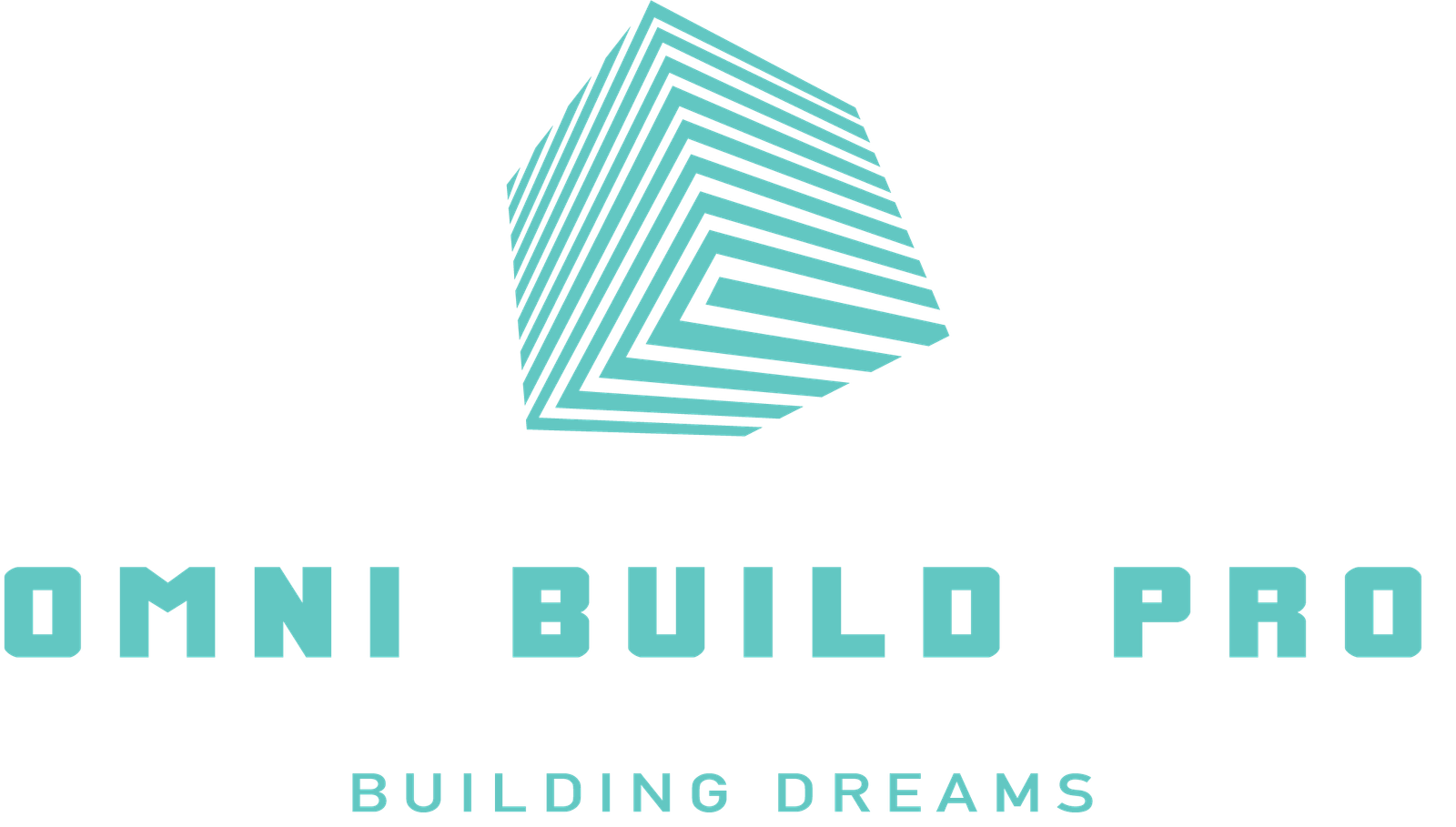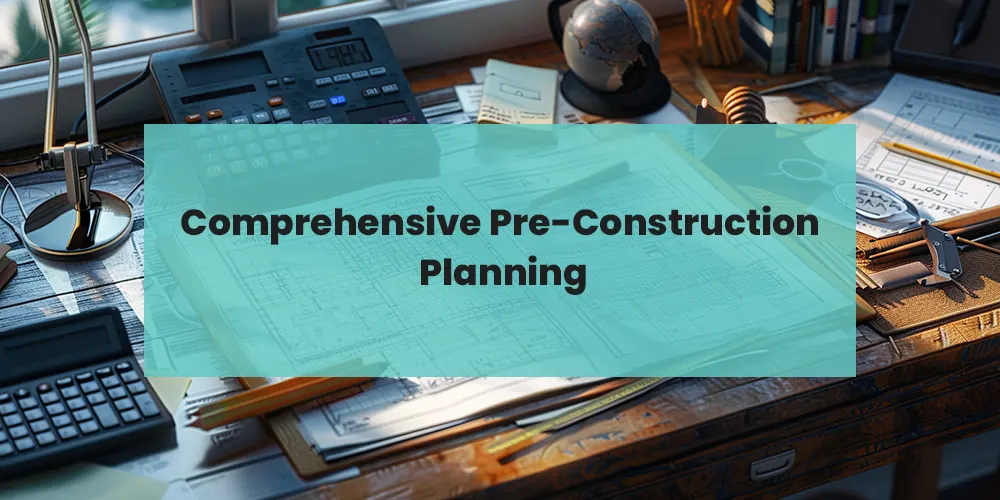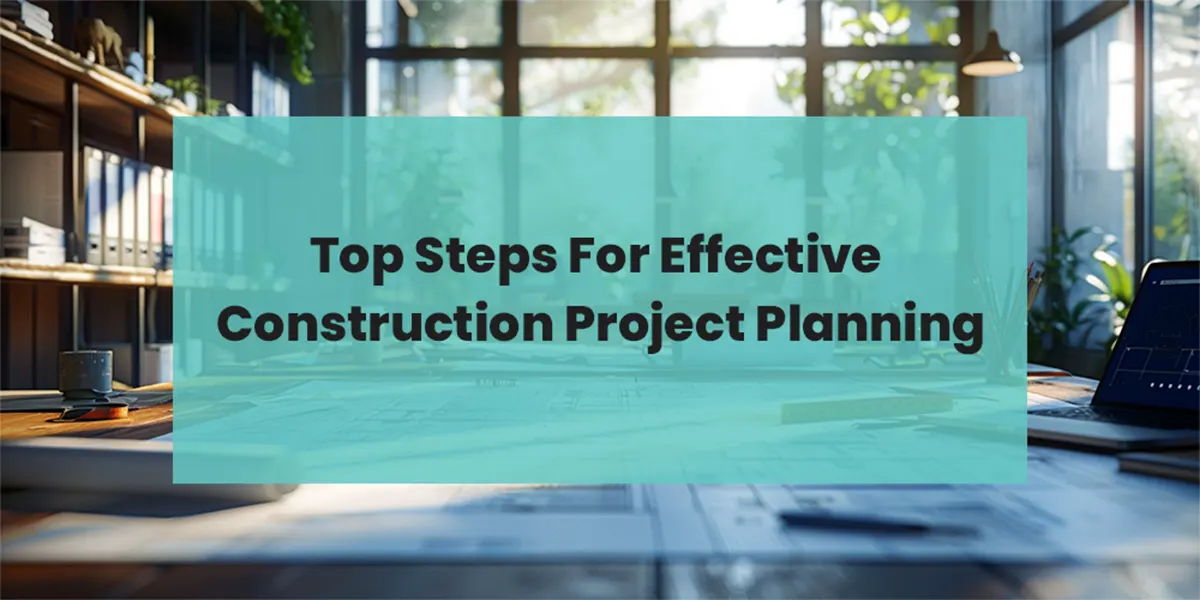Imagine you are planning a grand voyage. Before setting sail, you carefully chart your course, gather provisions, oversee your crew, and ensure your ship is seaworthy. Such meticulous planning is akin to a pre-construction process. Just as a well-planned voyage ensures a smooth journey, a thorough and carefully planned pre-construction task lays the foundation of your successful construction project.
To emphasize the importance of planning beforehand, the quote of H. Stanley Judd can be handy.
“A good plan is like a road map: it shows the final destination and usually the best way to get there.”

This reality is no different for construction projects. Even in the Construction Industry, you must devise a plan before the construction stage. Such planning is called Pre-construction Planning. Let’s take a look at what features are included in the pre-construction phase. In the pre-construction phase, a strategic plan for your construction project is drafted, designs created, permits secured, and resources necessary for your project gathered.
Undeniably, this pre-construction stage is crucial for the project stage as during this stage your team gets organized, and your project vision turns into a tangible reality. Without a strong foundation of Pre Construction Planning, your project will fall victim to unforeseeable challenges, leading to unnecessary delays and risks.
Research published by the Chartered Institute of Building found that projects that perform detailed pre-construction planning experience a 30-55% reduction in project-related risks.
Therefore, choosing effective pre-construction planning strategies will take your project one step closer to your success.
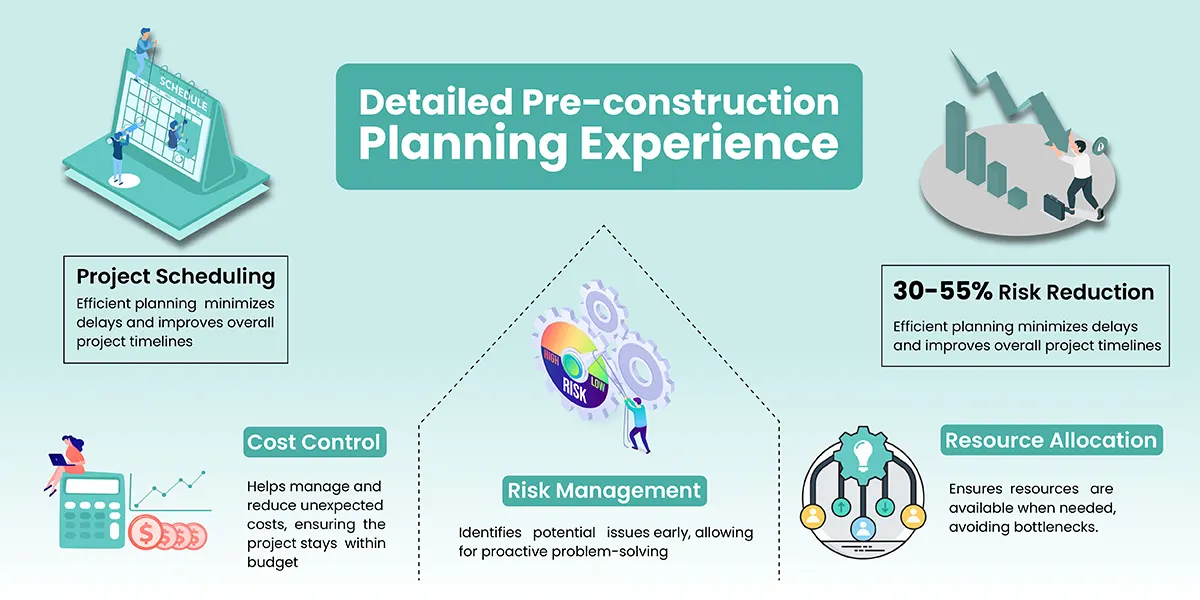
Considerations During Pre-Construction Phase
The pre-construction phase is about more than just understanding the project goals and scope. This phase sets the stage for how the project will unfold and lays a robust foundation by addressing several significant considerations. These considerations ensure the project meets its intended objectives, stays within budget, mitigates potential risks, and finishes on time.
Here are several critical considerations;
-
Site Selection
Choosing the right location for your construction project is paramount. In the pre-construction phase, focus is often placed on the area that aligns with your project vision.
-
Planning & Designs
Creating detailed and clear plans, specifications, and blueprints of your construction project, covering all the aspects of your project.
-
Budgeting & Scope
Both lie at the heart of pre-construction planning. The scope of work should include the project objectives, scale of work, and expected results. In budgeting, different costs related to materials, labor, equipment, and potential delays are considered.
-
Risk Assessment
It is impossible to rule out the possibility of potential risks’ involvement in the project. Therefore, it is necessary to perform risk assessment and identify potential challenges.
-
Permits & Inspections
Securing the permits and preparing the project for inspection are important and ensure compliance with building codes and safety protocols.
Why Every Project Needs a Solid Pre-Construction Plan?
For many constructors and stakeholders Pre Project Planning in Construction does not hold significant value. To one’s relief, this planning phase is not bereft of dividends. Once you implement the pre-construction process, your project will reach new heights of success.
Let’s delve into the benefits of solid pre-construction planning and how important it is for your successful project completion.
Benefits & Importance of Comprehensive Pre-Construction Planning
1. Reduced costs
Pre-construction planning ensures detailed cost estimations and identifies potential early costs. By incorporating budget estimations in pre-construction tasks, you can prevent cost overruns and complete the construction within the prescribed budget.
2. Improved Project Schedule Adherence
Without setting a realistic scheduling and project timeline, it is difficult to accomplish the project’s goals. This is where pre-construction planning comes in handy. Detailed scheduling and timeline planning in pre-construction help set achievable deadlines, ensure efficient resource allocation, and rule out bottlenecks in the construction.
3. Enhanced Risk Mitigation
In the pre-construction planning phase, risk assessment is important as a comprehensive assessment identifies potential risks and hazards related to the site, weather, safety, and regulatory protocols. Such attention to detail assessment helps the team devise strategies to alleviate the challenges, thereby ensuring enhanced risk mitigation.
4. Increased Communication and Collaboration
You can also enjoy increased communication and collaboration through pre-construction meetings and updates. These meetings allow all the stakeholders involved to align their goals, expectations, and responsibilities and promote better cooperation to reduce the chances of conflict.
5. Improved Project Quality
A well-planned project planning during the pre-construction leads to improved project quality. Standards for construction projects are defined early based on quality assurance. At every step, it is ensured through rigorous oversight that these quality standards are met throughout the project.
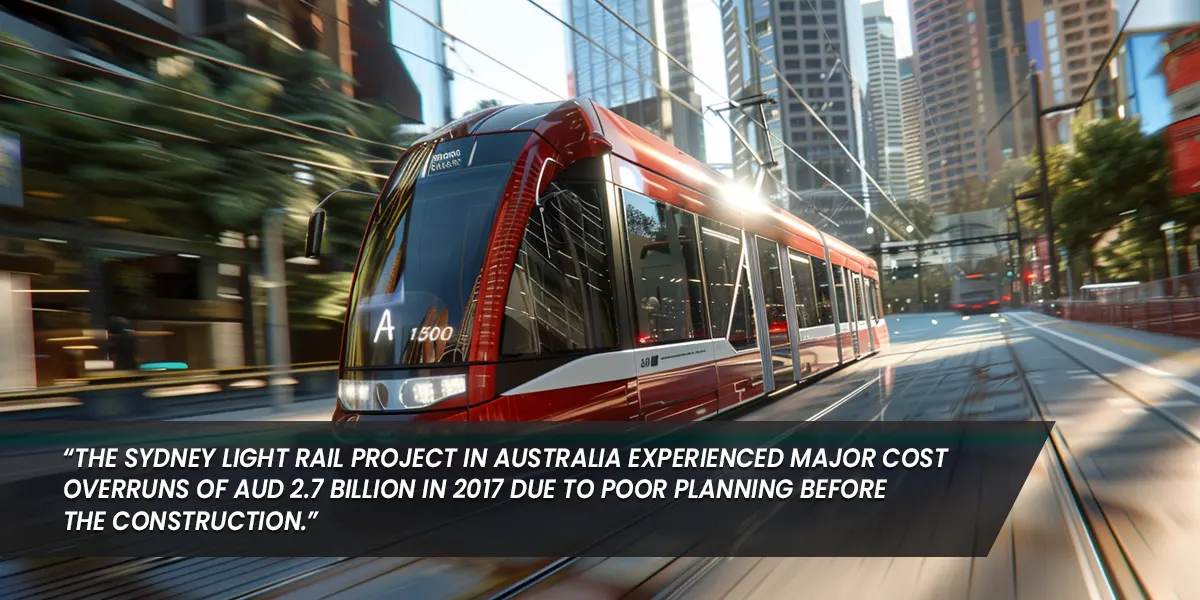
Challenges Due to Improper Pre-construction Planning
Undoubtedly, the stakeholders usually reap the fortunes by employing the pre-construction guide throughout their projects. However, improper and shoddy planning is not bereft of consequences. The lack of proper planning during the pre-construction phase can cause delays, regulatory and safety risks, and material shortages.
Let’s shed light on some challenges stakeholders can face during the construction projects. Insufficient planning leads to unexpected costs owing to poor cost estimation and budget management.
For instance,
The Sydney Light Rail project in Australia experienced major cost overruns of AUD 2.7 billion in 2017 due to poor planning before the construction.
Besides the budget issues, the project owners and stakeholders can also face scheduling & site management issues, disruption in supply chains, delay in permit acquisition, and disputes & miscommunication.

Real-world Example who Speaks Volume of Importance of Construction Pre-Planning
The Burj Khalifa is an embodiment of human and architectural brilliance. Like other construction projects, the project was difficult and riddled with obvious and hidden roadblocks. Several challenges range from high wind pressure, structural designs, logistics and resource planning, and safety risks to cost overruns. Despite all the challenges, the Burj Khalifa reached its peak, showing the world the power of meticulous and well-crafted Pre-construction Planning. Central to the planning lies attention to detail cost estimation, careful structural design plans, and innovative construction methods that align with project goals and outcomes. Given its unprecedented height, more focus was emphasized on the location and building site.
Moreover, with well-thought-out scheduling and resource allocation, the team overcame the challenge of logistics effectively and on time. This is the unparalleled power of effective and comprehensive pre-construction strategies that ensured the successful completion of this complex project.
Besides Burj Khalifa, several examples of impressive construction projects abound, showing the effectiveness of the planning. Whatever the nature of your project, you must start your project with the pre-construction phase. Different Pre-Construction Planning Guide and Strategies can be a game changer for your project. Whether you are an owner, developer, architect, engineer, or contractor, our guide related to planning different stages could be helpful in this regard.
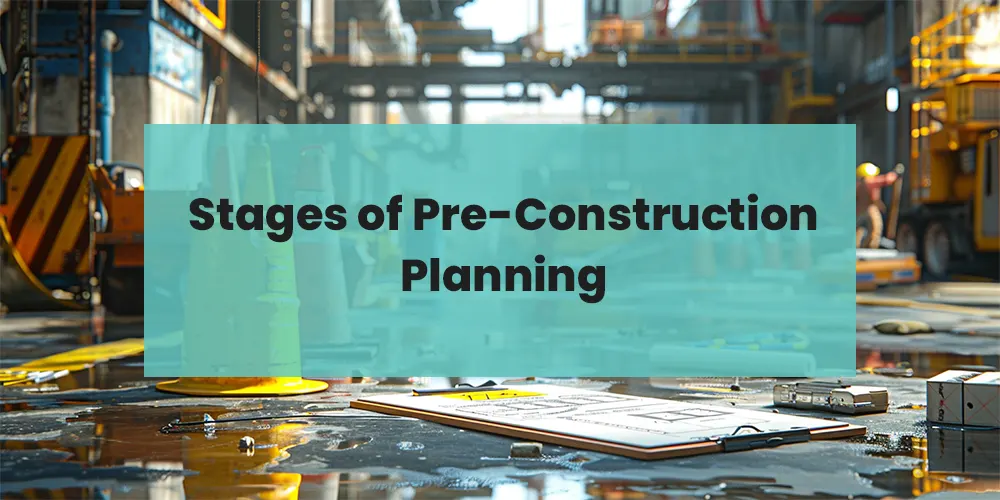
Different Stages of the Pre-construction Planning Process
Pre-construction planning is the most important stage of a construction project for a successful and well-crafted execution. It is not a single-step process; it contains a series of various steps involved in the Construction Pre Task Plan. By organizing and employing these stages, goals are defined, costs are managed, risks are mitigated, and all the stakeholders are aligned before the construction is started.
According to research, poor construction planning leads to 37% of project failures.
Let’s understand these steps and how you can ensure the successful completion of your construction project.
- Project Definition & Feasibility Study
- Design Development & Value Engineering
- Cost Estimating & Budgeting
- Scheduling & Project Management Planning
- Team Assembly & Contractor Selection
- Permitting & Regulatory Compliance
- Risk Assessment & Mitigation Strategies
1. Project Definition & Feasibility Study
The main purpose of this step is to define the project objectives and align them with the expected outcomes. In setting the project definition, different key activities are involved.
- The stakeholders come together and define the purpose and outline the scope of the project according to the size and nature of the construction project.
- In the project scope, stakeholders also discuss the initial vision which starts from the architectural designs.
- Moreover, to bring clarity to the project, an initial timeline is also sketched, proposing when the project should start and for how long the planning process will take.
The feasibility studies analyze the viability of the project conceptualization considering the constraints of cost, time, regulation, site conditions, environmental impacts, and market trends. Performing a comprehensive feasibility study helps the project owner understand their project’s opportunities and challenges. Resultantly, they can make informed decisions with a clear understanding.
According to the Royal Institute of Chartered Surveyors’ research, the use of feasibility studies during planning enhances 12% more efficiency in the projects.
In this process, different kinds of feasibility studies are conducted to enhance the success ratio of your project.
-
Technical Feasibility
In this study, it is assessed whether the project can be completed or not within existing technical capabilities and resources.
-
Market Feasibility
Evaluating the market demands and the competitors in the face of the construction project.
-
Financial Feasibility
Analyzing the feasibility of the project by estimating the costs and budgetary allocations.
-
Legal Feasibility
Ensuring whether the project adheres to building codes, legal and regulatory frameworks.
In Omni Build Pro, our experts excel at offering Pre-construction Service to project owners, contractors, and developers. We meticulously draft the project scope and vision and perform the feasibility studies by using advanced tools and software. So your project’s foundation remains firm.
2. Design Development & Value Engineering
In design development, the initial specifications of the project are translated into schematic designs. This step involves the joint efforts of architects, interior designers, engineers, and contractors. Different activities are involved in the step.
- The first step starts with the architectural designs where the design team develops schematic drawings to create a visual picture of the project layout.
- Now comes the structural design process. In this step, experts in structural, mechanical, electrical, and plumbing engineering ensure the building’s robustness and efficiency.
- 3D models are often created to provide a clear representation of the final picture
- Throughout the development phase, design reviews are undertaken to eliminate design discrepancies.
The value engineering approach is also used to identify and remove unnecessary and exorbitant costs while ensuring the designs meet the quality and functionality. Here the designers review the designs and materials to identify the areas of cost reduction. Resultantly, through this approach, a refined design comes to the fore balancing cost efficiency with project quality.
At Omni Build Pro, we offer design development and Commercial Architectural Services at competitive rates. Our highly qualified architects use Building Information Modeling (BMI) to create top-of-the-quality designs for infrastructure and commercial buildings.
3. Cost Estimating & Budgeting
Cost estimation is an integral part of the pre-construction phase. Without understanding the accurate financial requirements, it is difficult to complete the construction project within the prescribed budget. Different steps involved in cost estimation and budgeting are as follows:
- Preliminary Budgeting: during the conceptualization phase, the rough figures are calculated and provided to the project owners.
- Detailed cost estimation: to provide an accurate picture of your finances, detailed estimates are carried out involving labor costs, material costs, equipment and tools rents, and site preparation costs.
- Soft Costs: the costs related to permit approvals, legal fees, architectural and engineering costs, and insurance & bonding are also calculated.
- Value Engineering: designs are optimized to reduce cost overruns without compromising the quality and functionality of the project.
- Contingency Planning: such planning is often included in the pre-construction phase to manage unexpected costs such as fluctuations in material prices, design changes, and weather-related delays.
- Regular Budget Reviews: To ensure that your project will remain within the budget limit throughout the construction project.
At Omni Build Pro, our experts possess unparalleled expertise in conducting cost estimation for every kind of project, be it simple project or complex like FF&E and OS&E Procurement Services. We assess and handle every cost in Pre Contract Planning in Construction.
4. Scheduling & Project Management Planning
In a Construction Pre Task Plan, it is necessary to set a realistic timeline, taking into consideration related to resources, technical capabilities, and cost. A well-planned project scheduling process starts with developing a Work Breakdown Structure, dividing the project’s scope into manageable tasks. So it will become easy to allocate the resources and manage the cost. The Critical Path Method (CPM), is selected based on the project’s requirements.
After opting for the critical path, resources like labor, equipment, and materials are allocated to each task, optimizing efficiency and preventing delays. Sometimes, unanticipated risks can also derail the project timeline.
Therefore, risk evaluation is also carried out to assess potential loopholes and roadblocks and plug them effectively. The experts develop visual representations of the schedule, like network diagrams, to communicate the project timeline and dependencies. Scheduling is often performed as part of the project management planning, encompassing other planning activities.
Omni Build Pro is also the talk of the town when it comes to delivering Construction Project Management Services. We offer different kinds of scheduling services ranging from CPM Scheduling, and Microsoft Project Scheduling to Primavera Scheduling services.
5. Team Assembly & Contractor Selection
A well-organized team is important for the seamless completion of the pre-construction phase. Different team members like architects, designers, contractors, cost estimators, and quality control managers are selected on rigorous and transparent criteria. Moreover, choosing a contractor is also of paramount importance. This is often done by using Request For Proposals and Invitation to Bid. Contractors must have an extensive understanding of the project’s requirements and years of hands-on experience related to a construction project. Besides considering the experience and reputation, other factors such as financial stability, safety record, communication, and insurance are also taken into account.
At Omni Build Pro, we leave no room for any kind of error in the assembly of the team and selection of contractors. If you are looking for a contractor for Procurement Services, contact us for a better experience.
6. Permitting & Regulatory Compliance
Obtaining permitting approvals and ensuring compliance with building codes are the necessary steps in pre-construction planning. Key activities involved in this process are:
- The beginning of the permitting process starts with submitting architectural and structural plans to local authorities for review
- Local authorities and regulatory bodies review the permitting draft, assess the loopholes, and request revisions if necessary.
- After fulfilling all the requirements, the authorities issue building permits, zoning approvals, and licenses.
- The last step involves adherence to building codes, environmental regulations, and safety protocols.
Obtaining the permits is a hectic task and not everyone’s cup of the team. Are you stressed about how to handle lengthy and complicated permit-related paperwork?
Worry not!
Omni Build Pro is here to deal with permit procedures on behalf of project owners.
7. Risk Assessment & Mitigation Strategies
Every project comes with anticipated and hidden risks. These risks are usually beyond their control. However effective assessment and mitigation approaches make a difference and ensure successful project completion. This is why it is important to include the risk assessment in the pre-construction phase. The first step involves the risk identification. In this step, stakeholders collaborate to identify the possible risks. The site inspection is also carried out to understand the environmental and site-related risks. After understanding every kind of risk involved in the project, the stakeholders evaluate the impact of each identified risk. In the end, efficient risk mitigation strategies are employed to root out all the possible risks. Either you can change the project plan to eliminate the risk or implement the measures to reduce the likelihood.
Omni Build Pro is also committed to delivering risk assessment and mitigation services. If you are unable to identify the risks of the supply chain in Energy Procurement Services, we are at your immediate service. We will live up to your satisfaction.
Also Read About Our Top 7 Key Construction Project Planning Steps
Drafting & Materializing an Effective Pre-construction Plan Under the Experts’ Guidance
If you have undertaken a construction project and failed to lay down a robust foundation from the start. Then worry not!
The solution lies in drafting and materializing an effective Pre-construction plan under the experts’ guidance and expertise. This is where Omni Build Pro shines the most!
The experts of Omni Build Pro possess years of expertise and extensive knowledge in developing the Pre Task Plan Construction Process. By partnering with our reputable Construction Company, the project owners can leverage the expertise of an experienced team, a proven track record of methodologies, and cost-effective solutions. Our experts schedule meetings with the owners and understand their project requirements. They also help them evaluate the project challenges and weaknesses and create a pre-construction plan after taking into account all the considerations. Whatever the nature of your project, we will guide you through and plan everything with care and professionalism. Only we can create a difference in your project. So without any second thought, contact us or send us an email at info@omnibuildpro.com to schedule a meeting with us!
Final Thoughts
To sum up the Comprehensive Pre-construction Planning Strategies, one cannot refute their importance in construction projects. A well-organized pre-construction plan enriched with project scope, a realistic timeline, meticulously calculated cost estimations, effective team assembly, and risk management can be a game changer for your construction project. If you want to pursue a construction project without any stumbling blocks, let our experts help you develop pre-construction guidance for your project.
Hire the expertise of Omni Build Pro. Visit our website to further explore our top-notch services.
Frequently Asked Questions
1. Define Pre Construction Planning?
It is a fundamental preparation and organization that occurs before the step of construction. This phase entails project scopes, design development & review, scheduling, risk assessment, resource allocation, and cost estimations. So your project will be completed successfully without any delays.
2. What is a Pre Construction Phase Plan?
It is a formal document that defines how the safety risks will be managed throughout the construction project. Therefore, the project manager must cover the aspects related to site-specific hazards, safety arrangements, responsibilities of stakeholders, and emergency protocols to reduce the safety challenges.
3. Is Planning Part of the Pre Construction Process?
Yes, it is an essential part of the pre-construction process as planning includes developing project goals, defining the scope of work, and crafting the strategies for successful execution.
